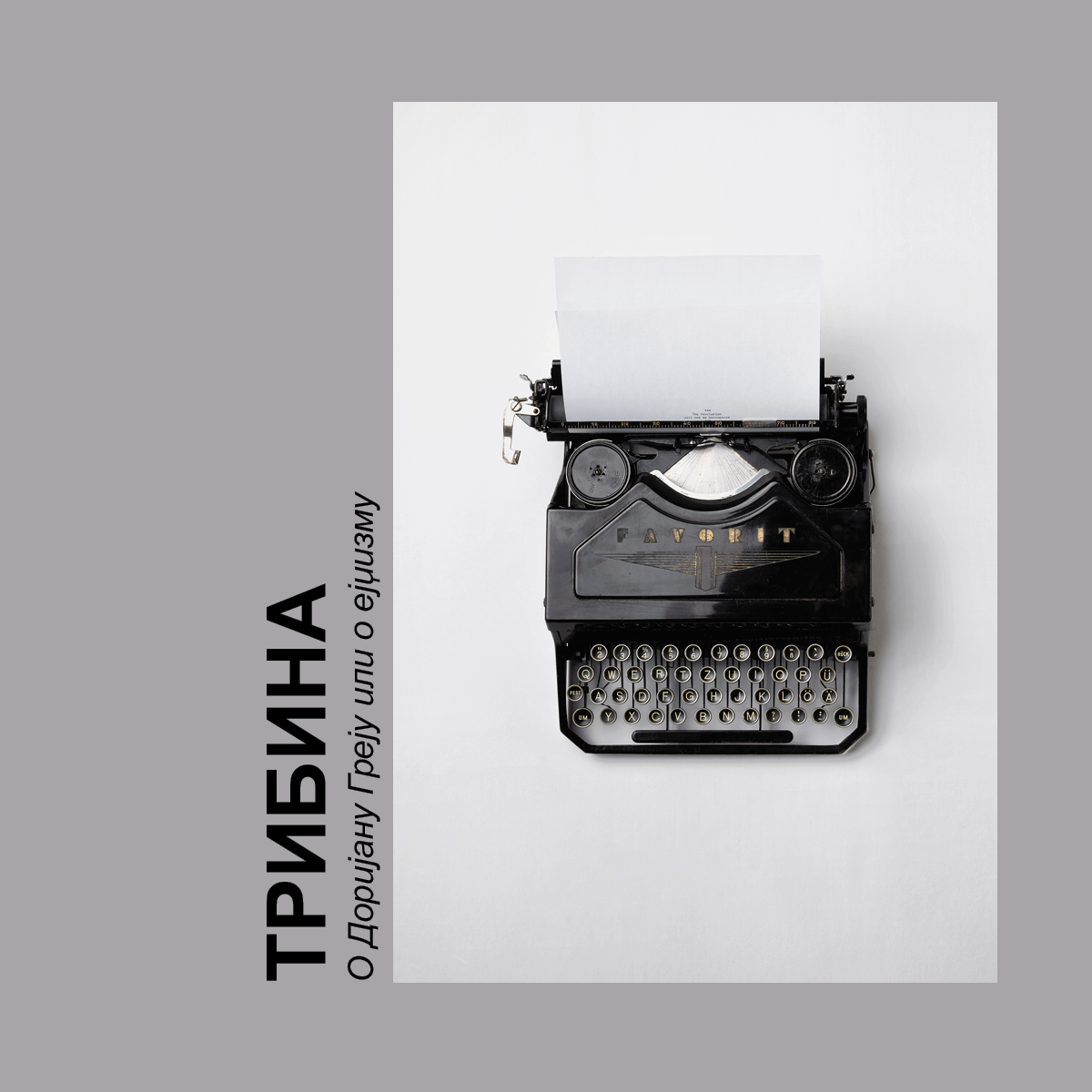
Why would creativity be connected to age? How does art, which is supposed to stand against clichés and mechanisms helping people perceive themselves as inferior, the subordinate ’other’, use these techniques? Why would we accept an obligating identity marked by someone’s age as one and only identity? How can we perceive someone’s spirit based on someone’s age? Constructing an identity based on a mere number is yet another imposed stereotype.
Answers to these questions can be found in the ’About Dorian Gray or Ageism’ project by Ljiljana Maletin Vojvodić, writer, and Dragana V. Todoreskov, literary critic and theoretician. This project will be presented to public in the Svilara Cultural Station on 8 October, at 6 p.m.
This project is a continuation of a several-years project #Novi Sad_Literary Autumn and is implemented as a literary panel with ageism as the topic and video-work as a result of the workshops regarding creative writing/discussions on literature and ageism, in which the citizens of Novi Sad participated.
The video-work was initially envisaged as a workshop of creative writing for older citizens. Due to the coronavirus pandemic and inability to implement the workshop, the video-work is now result of discussions and thinking about culture of reading and writing, which stand against the prejudices about equating identity to one’s age and against the stereotype that creativity is a differentia specifica of youth.
‘Does the scorn we have for aging show that we are hoping not to get old? Are we aware that the Dorian Gray complex, pathological aversion of getting old, is actually an indicator of our humanness, responsibility and attitude towards the future? Ageism, unfortunately, has many faces: (un)intentional, un(conscious), personal, collective, institutional, language, cultural, corporate, geographical…Sure ageism in contemporary art isn’t the most awful form of discrimination, or the most important aspect of it, but that doesn’t mean it should be overlooked. In the artistic world there’s an obvious obsession with being young – old people are not important, they are marginalised, not just in art, but in daily life as well. And if the old person is a woman at that, a financially marginalised woman from the Balkans, the stereotypes multiply,’ says Ljiljana Maletin Vojvodić, author of the video.
In addition to the video, the audience will have an opportunity to attend the literary panel with Dragana Todoreskov, literary critic, and Gordana Draganić Nonin, journalist, as participants. The topics that are going to be discussed are: What Does Age Bring – Experience, Different Attitude Towards Life, Skepticism or Optimism?; The Process of Getting Old and Self-Discovery; Old Age and Consumer Society – Ageism in Consumerism; A Woman Getting Old – the Reproductive System – Role in Society; ‘What Does That Grandma Want?!’, Baba Jaga – Ageism and Sexism Walk Hand in Hand (Double Oppression); Affirmed Writers in Old Age / Bright Side of Life – Writing as a Form of Therapy.
Alluding to the theme of the Oscar Wilde’s novel, Burkhard Brosig described the ‘Dorian Gray Syndrome’ in 2000, defining it as an anxious longing for ‘eternal youth.’ Ageism is a global phenomenon, but impressions on old age, besides the fact that they are individual and thus different, implying the ‘collective unconsciousness’, are determined in social and geographic context. We don’t speak about ageism enough in this region, the prejudices still exist despite the fact that older people are the ones most discriminated in Serbia.
‘In the artistic world there’s an obvious obsession with being young – old people are not important, they are marginalised, not just in art, but in daily life as well. And if the old person is a woman at that, a financially marginalised woman from the Balkans, the stereotypes multiply. We witness different literary and residential calls and grants for artists up to 35 or 40 years of age; insistence on young authors to connect on generational level. This, of course, doesn’t mean that there’s no different examples as well – perceiving young people as self-centered, not experienced and hardworking enough, shows that anti-ageism is not always a positive thing neither. It shows that, it too, can be a form of discrimination,’ points out Ljiljana Maletin Vojvodić, author of the project.
‘Dorian Gray Complex’ or pathological aversion of getting old is an indicator of our humanness, responsibility and attitude towards the future. The ‘About Dorian Gray or Ageism’ project is one of the 42 projects that received funds on the Public call ‘Artists. Now!’, aimed at strengthening the local cultural scene.
Organisers kindly ask all visitors to adhere to all measures in order to maintain health and enjoy cultural events. Visitors are obliged to wear masks during all events. The maximum number of visitors, which is 500 people in public spaces and indoors, is being monitored during events.